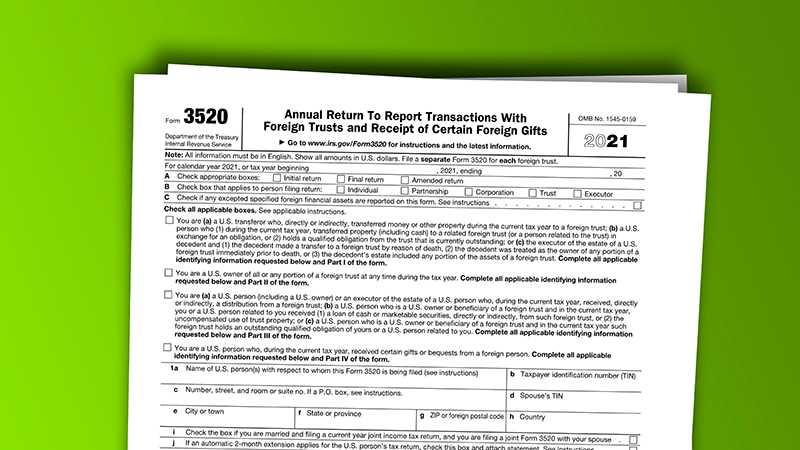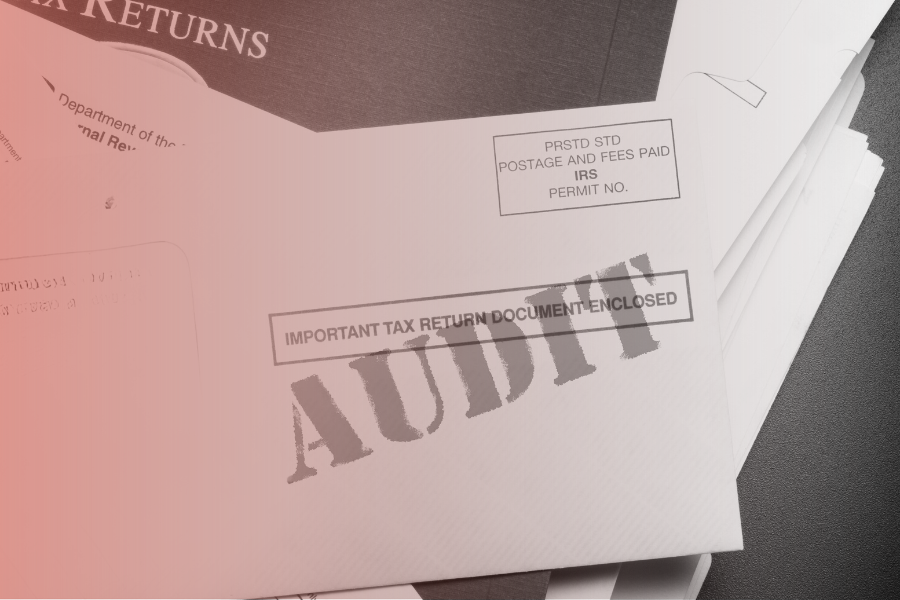Important facts on reporting foreign inheritance to IRS timely
Wiki Article
Understanding the Value of Coverage Foreign Inheritance to IRS for Tax Conformity
Maneuvering the intricacies of foreign inheritance calls for a clear understanding of IRS reporting responsibilities. Many people underestimate the relevance of accurately reporting these possessions, which can bring about unexpected consequences. Falling short to adhere to IRS guidelines might result in substantial fines and legal issues. It is crucial to understand the subtleties bordering international inheritances to avoid risks. The following sections will clear up essential aspects of compliance and the prospective threats involved.
What Constitutes Foreign Inheritance?
When a specific obtains assets from a deceased person's estate located outside of the United States, this transfer is considered a foreign inheritance. Foreign inheritances can consist of various sorts of assets such as realty, bank accounts, investments, personal possessions, and company interests. The value and nature of these assets may differ substantially relying on the regulations and personalizeds of the nation in which the estate is situated.Furthermore, the process of obtaining these assets can involve maneuvering through international lawful systems, which may impose specific requirements or tax obligations connected to inheritance. The recipient might likewise experience challenges in determining the reasonable market price of the inherited assets, especially if they are not aware of the neighborhood realty or financial markets. Recognizing what makes up an international inheritance is important for individuals to assure compliance with both local regulations and any type of potential commitments they may have in their home country.
IRS Reporting Needs for Foreign Inheritance
Exactly how does one steer via the IRS reporting needs for foreign inheritance? People that get an inheritance from abroad must be mindful of particular reporting obligations to assure compliance with IRS laws. The Foreign Bank and Financial Accounts Record (FBAR) is one crucial demand; if the total value of international accounts surpasses $10,000 any time during the year, it has to be reported. Furthermore, Form 3520 might be needed for reporting foreign presents or inheritances over $100,000 from non-U.S. persons. This type records details concerning the inheritance, including the resource and quantity. Falling short to stick to these coverage requirements can lead to significant fines. It is important for receivers to keep detailed records of the inheritance, including any kind of documentation from foreign entities. Consulting with a tax expert educated about worldwide tax obligation laws can offer more guidance in steering via these reporting obligations efficiently.Tax Obligation Effects of Receiving an Inheritance From Abroad
Receiving an inheritance from abroad can bring substantial tax obligation implications for individuals, especially as they browse the intricacies of global tax obligation laws. The IRS requires U.S. citizens and residents to report international inheritances, which might activate numerous tax obligation obligations - foreign gift tax reporting requirements. Although inheritances themselves are typically not thought about taxable earnings, reporting is crucial to stay clear of finesFurthermore, the estate may go through inheritance tax in the foreign country, which can influence the internet value gotten by the beneficiary. If the inheritance includes foreign properties, such as realty or financial investments, they might include distinct tax considerations, consisting of potential funding gains taxes upon sale.
Additionally, people might need to comply with foreign tax obligation guidelines, which can differ noticeably from U.S. laws. Recognizing these ramifications is vital for proper tax obligation compliance and to assure that all responsibilities are met without sustaining lawful issues or unneeded costs.
Typical Blunders to Prevent When Coverage Inheritance

Steps to Guarantee Compliance With IRS Laws
Recognizing the actions needed to assure conformity with IRS guidelines is essential for anyone reporting a foreign inheritance. Individuals ought to confirm whether the inheritance exceeds the reporting limit, which can cause added demands. Next, it is essential to collect all appropriate documentation, including the will, trust documents, and documents of the international estate's value.Submitting Type 3520, which particularly deals with foreign presents and inheritances, is important to educate the IRS of the inheritance. Individuals should also ensure that any kind of relevant taxes connected to the inheritance are paid, consisting of prospective estate taxes in the international territory.
Additionally, maintaining precise records of all transactions and interactions pertaining to the inheritance can supply required support in instance of an IRS questions. Seeking specialist recommendations from a tax obligation expert aware of worldwide tax obligation legislations can further enhance conformity and minimize threats related to reporting international inheritances.
Often Asked Questions

What Takes place if I Fail to Record My Foreign Inheritance?
Failing to report an international inheritance can cause considerable penalties, passion on unsettled tax obligations, and prospective legal effects. The IRS may pursue enforcement activities, complicating future economic negotiations and compliance responsibilities for the individual entailed.Can I Deduct Expenditures Associated to Receiving Foreign Inheritance?
No, costs related to obtaining a foreign inheritance are usually not insurance deductible for tax objectives. Inheritance itself is normally not thought about taxed earnings, and linked costs can not be asserted to decrease tax obligation responsibility.Exist Fines for Late Reporting of Foreign Inheritance?
Yes, there are fines for late reporting of foreign inheritance to the IRS - IRS Form 3520 inheritance. These can consist of penalties and interest on overdue tax obligations, making prompt disclosure vital for conformity and avoiding extra economic burdensExactly How Does Foreign Inheritance Impact My State Tax Obligations?
Foreign inheritance may affect state tax obligations differently depending upon territory. Some visit homepage states impose inheritance or estate taxes, while others do not. It is crucial to seek advice from neighborhood policies to identify particular tax implications associated to international inheritance.
Are Presents From Abroad Considered Foreign Inheritance for IRS Purposes?
Presents from abroad are not classified as foreign inheritance for IRS objectives. reporting foreign inheritance to IRS. Rather, they are treated individually under present tax obligation policies, with various coverage needs and limits that people should stick to for conformityIn addition, the process of acquiring these possessions can entail maneuvering through international legal systems, which might enforce specific demands or taxes connected to inheritance. The Internal revenue service requires U.S. residents and citizens to report foreign inheritances, which may set off different tax obligation commitments. Sending Form 3520, which specifically attends to Check This Out international gifts and inheritances, is crucial to inform the IRS of the inheritance. Failing to report a foreign inheritance can lead to significant penalties, interest on unpaid taxes, and potential legal consequences. No, expenses connected to obtaining an international inheritance are usually not insurance deductible for tax obligation functions.
Report this wiki page